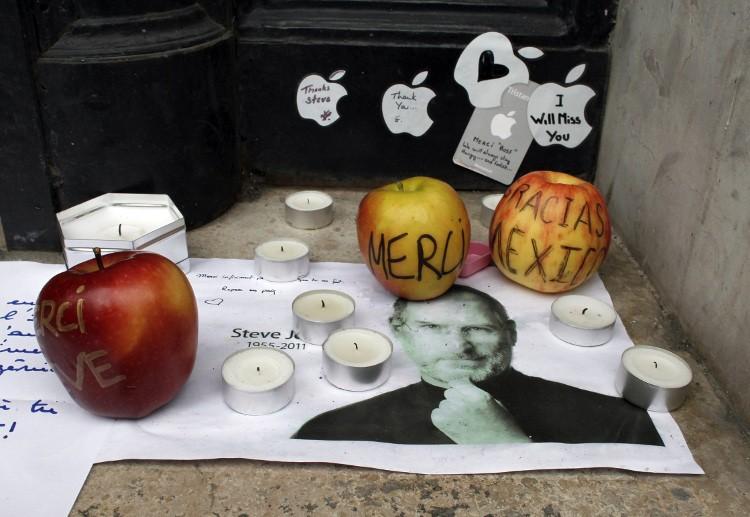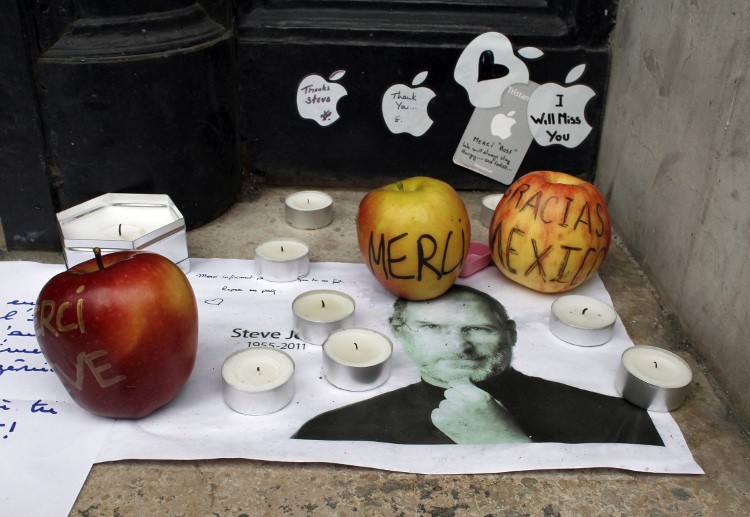Steve Jobs Remembered in Europe
Europe’s reaction to the death of Apple co-founder Steve Jobs varied, from outright admiration to mild criticism.

Apples are left in remembrance of Steve Jobs, former CEO of Apple Inc., outside the Apple Store on Oct. 6 in Paris, France. Jobs, who died Oct. 5, co-founded Apple in 1976 and is credited with marketing the world's first personal computer.Thomas Coex/AFP/Getty Images
|Updated:





